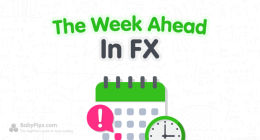The actor Angus Cloud, who died this week, struggled “intensely” after his father’s death. Collectively, we need to reckon with how we support the bereaved
The day after my dad’s funeral, in August 2020, I got a text from my manager asking when I was coming back to work. I stared at my phone and felt bile rise in my throat. They weren’t being intentionally callous. In fact, my manager had been supportive and empathic throughout my dad’s short illness. But my two weeks of discretionary bereavement leave were up. My choice was to go back to the office or use up my remaining holiday allowance. Something inside me threatened to snap.
I wasn’t ready to go back to work. I wasn’t a functioning human at that point: I had severe brain fog, I felt numb and apathetic about everything, I was awake all night and lethargic during the day, I was barely eating. There were hours or full days when I physically could not stop crying. If you described these symptoms to a medical professional, they would probably diagnose acute mental illness, sign you off work, and prescribe medication or talking therapy. But grief is different. Despite the fact that it is a universal human experience, something we all have to go through at some point in our lives, grief is still not taken seriously enough.



